Dragon fruit farming has gained popularity in India in recent years, especially with the changing climate conditions that affect plant health. Many farmers face challenges like lack of growth and smaller fruit size, even though they are doing everything right. Often, the cause of these issues remains unidentified until it’s too late. This is where soil testing becomes a crucial practice. Let’s explore why Soil testing for dragon fruit farming is essential for boosting dragon fruit production.
The Role of Soil testing for dragon fruit farming
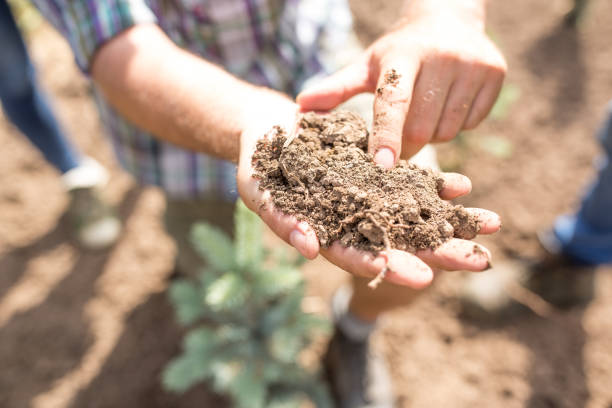
As we know, dragon fruit farming is expanding rapidly in India, and farmers are eager to turn it into a profitable commercial venture. But success in dragon fruit farming requires more than just good plants and proper care. Soil quality plays a significant role in the growth and yield of this fruit.
- Soil Quality Impacts Growth & Yield: Soil quality directly influences the growth, health, and yield of dragon fruit. If your soil lacks essential nutrients, plants won’t grow as they should. Soil testing is a scientific method to find out what nutrients your soil may be missing, or if there’s an excess of something that needs to be reduced. This knowledge can help you make informed decisions for healthier plants and better fruit production.
What is Soil Testing? Improving dragon fruit yield with soil testing
Soil testing for dragon fruit farming involves collecting samples from different parts of your land and analyzing them to determine the presence and levels of essential nutrients like nitrogen, phosphorus, potassium, and other micronutrients. The process also checks the pH level (acidity or alkalinity), organic matter content, and other vital elements in the soil.
- What is Tested?
- pH level: Determines soil acidity or alkalinity.
- Organic Matter: Measures soil fertility.
- Nitrogen, Phosphorus, Potassium: Key nutrients for plant growth.
- Micronutrients: Such as iron, zinc, and magnesium, which play a supporting role in plant health.
Soil testing ensures you know exactly what is happening beneath the surface and provides you with the tools to correct any deficiencies.
Best soil conditions for dragon fruit farming
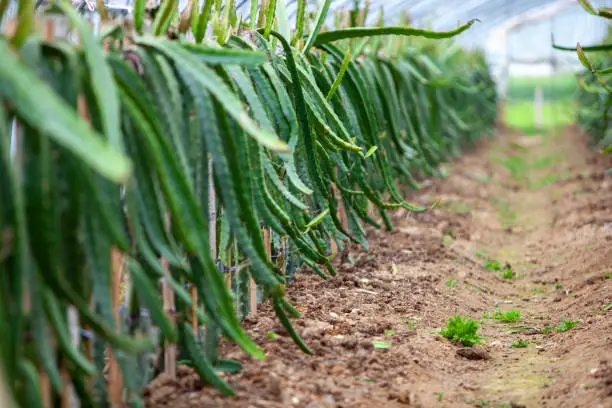
When it comes to dragon fruit, selecting the right soil is crucial as it directly impacts the quality and quantity of the harvest.
- Soil pH: Dragon fruit plants thrive in slightly acidic soil, with a pH level between 6 and 7. This pH range makes it easier for the roots to absorb essential nutrients.
- Water Drainage: Well-draining soil is essential for dragon fruit. The plants need soil that allows water to pass through easily. If water gets trapped in the soil, it can lead to root rot and weaken the plants. During planting, a slight slope can be created using a tractor to ensure that excess water doesn’t collect around the plants.
- Nutrient Balance: Soil testing for dragon fruit farming should have adequate levels of nitrogen, phosphorus, and potassium. A lack of these nutrients can stunt plant growth and negatively affect fruit quality. Good soil provides the right nutrition, helping the plants grow stronger and healthier.
Why Soil Testing is a Must? Soil fertility for dragon fruit production
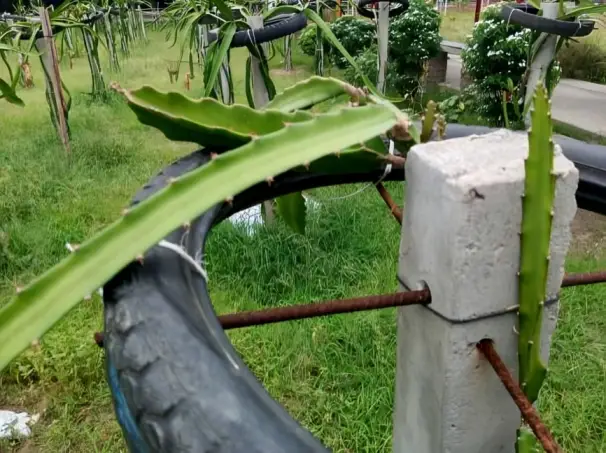
1. Identifying Nutrient Deficiencies
- Soil testing for dragon fruit farming reveals which nutrients are lacking in your soil and which ones are in excess. For example, a lack of nitrogen or potassium can slow down the growth of your dragon fruit. With this knowledge, you can apply the right fertilizers in the correct amounts to correct the imbalances. This not only improves plant health but also enhances fruiting time and quality.
2. Increasing Production
- When the soil’s nutrient levels and pH balance are optimal, plants grow faster and more robustly. Soil testing helps ensure that your soil conditions are ideal for the plants to flourish. Healthier plants lead to higher yields, giving farmers the opportunity to reap the benefits of commercial farming.
3. Reducing Costs
- Without Soil testing for dragon fruit farming, many farmers tend to apply fertilizers and soil amendments without knowing the specific needs of their soil. This can lead to wasted resources and unnecessary expenses. Soil testing helps you avoid applying unnecessary fertilizers, saving money while still improving plant growth and yield.
4. Maintaining Soil Health
- Regular soil testing helps maintain soil fertility in the long run. Over time, continuous farming can deplete the soil of essential nutrients, impacting the fruiting period and quality. By regularly testing the soil, you can monitor and replenish nutrients before they reach critical levels, ensuring that the soil remains fertile for years to come.
5. Water Management
- Soil testing can also give insights into how well your soil retains or drains water. Some soils retain water for longer periods, while others dry out faster. By understanding your soil’s water retention capacity, you can plan irrigation systems better, avoid water wastage, and keep your plants hydrated without overwatering.
Why Soil Testing is Critical for Dragon Fruit Yield?
Soil testing for dragon fruit farming should never be ignored, as it helps avoid common mistakes like missing essential nutrients or incorrectly balancing the soil’s pH. Without proper testing, you might struggle with poor plant health and low yields. Soil testing helps ensure that you’re using the right fertilizers at the right time, making your farming venture more efficient and profitable.
Conclusion:
Incorporating soil testing into your dragon fruit farming routine is a game-changer. It boosts fruit quality, maintains soil health, and ensures your plants are always properly nourished. For commercial farmers, this practice is not just helpful; it’s essential for maximizing profit and ensuring sustainable farming.
FAQs:
Q1: How does soil testing increase profit for dragon fruit farmers?
- By knowing the right nutrients your soil needs, plants grow healthier, and dragon fruit yield improves, leading to greater profits for farmers.
Q2: How can I tell if my soil lacks nitrogen?
- If the plants show slow growth, it’s often a sign that the soil is deficient in nitrogen, and a soil test will confirm this.
Q3: How often should soil testing be done?
- It’s recommended to test your soil twice a year. Doing it more frequently isn’t necessary, but it can help keep track of changes in soil quality over time.
By making soil testing a regular part of your farming practices, you can maximize both the quality of your dragon fruit and your overall farming success.
Extra Tips for Boosting Dragon Fruit Yield through Soil Testing
1. Understand Your Soil’s Biological Health
- Why it matters: Soil is not just a collection of minerals. It’s a living ecosystem with bacteria, fungi, and worms that help break down organic matter and make nutrients available to plants. Healthy soil has a strong microbial population. If your soil test reveals that microbial activity is low, it might be worth adding compost or organic matter to encourage healthy soil life.
- Tip: Use organic amendments like compost or worm castings to boost soil life. It’s like feeding the soil’s Improving dragon fruit yield with soil testing “good bacteria,” helping your dragon fruit grow better.
2. Adjust Soil pH Gradually
- Why it matters: A sudden change in pH can shock plants, so adjusting it slowly is key. If your soil test shows that the pH is outside the ideal range (6 to 7 for dragon fruit), avoid using heavy chemicals to adjust it quickly. Instead, work with natural methods that gradually bring it into balance.
- Tip: To lower pH (if the soil is too alkaline), try adding organic materials like pine needles or sulfur. To raise pH (if it’s too acidic), use ground limestone. These natural methods are gentler on the soil and your plants.
3. Use the Right Fertilizers Based on Soil Test Results
- Why it matters: Fertilizers are not a one-size-fits-all solution. Your soil test will show you exactly what your soil is lacking. Over-applying the wrong type of fertilizer can lead to poor growth or even damage the soil.
- Tip: If the test shows a potassium deficiency, use a slow-release potassium fertilizer. If your soil is low on phosphorus, opt for bone meal or fish meal. Using the right fertilizer for the deficiency ensures plants get exactly what they need without excess.
4. Pay Attention to Micronutrients
- Why it matters: Many farmers focus only on nitrogen, phosphorus, and potassium, but your plants also need micronutrients like zinc, copper, and boron. Best soil conditions for dragon fruit farming will often give you insights into whether your soil is deficient in these trace elements.
- Tip: If your soil test indicates micronutrient deficiencies, try using foliar sprays that provide quick absorption. These micronutrients help the plant with processes like flowering and fruiting, which directly affect dragon fruit yield.
5. Test for Salinity Levels
- Why it matters: Salinity can be a silent killer for plants. High salt content in the soil can harm plant roots, causing dehydration and nutrient deficiencies. Soil testing can reveal high salt levels, which might not be obvious on the surface.
- Tip: If your soil test shows high salinity, try leaching your soil by applying excess water, which helps wash away some of the salts. Planting salt-tolerant crops between dragon fruit plants can also help in managing salinity levels.
6. Test Soil Texture for Proper Drainage
- Why it matters: Dragon fruit plants don’t like to have “wet feet,” meaning they hate standing water. If your soil test indicates that the texture is clay-heavy, it could mean poor drainage, which can lead to root rot.
- Tip: Add organic matter like compost to clay-heavy soil to improve its structure and drainage. Alternatively, consider raised beds or mounds to encourage good water flow around the roots.
7. Don’t Forget to Test After Major Changes
- Why it matters: Whenever you make significant changes to your land—like adding compost, applying new fertilizers, or planting cover crops—it’s important to retest the soil. This ensures that the changes you made are actually having the desired effect.
- Tip: After any major amendments, schedule a follow-up soil test within a few months. This helps you track how the soil is reacting and if any further adjustments are needed.
8. Check for Heavy Metals
- Why it matters: In certain regions, Soil fertility for dragon fruit production soil might have contamination from pollutants like lead, arsenic, or cadmium. These heavy metals can accumulate in crops, affecting their growth and making them potentially unsafe for consumption.
- Tip: While soil tests for heavy metals might be more specialized and not always included in regular tests, it’s worth considering if you’re in an industrial area or near old buildings. There are specific testing kits for heavy metals that you can use to check for contaminants.
9. Make the Most of Organic Farming Techniques
- Why it matters: Organic matter improves soil structure, moisture retention, and nutrient content. When the soil test shows that your soil needs more organic material, instead of buying chemical fertilizers, you can use organic methods that naturally improve soil health.
- Tip: Consider mulching with straw, leaves, or grass clippings around your dragon fruit plants. This not only improves soil health but also helps retain moisture and suppress weeds.
10. Plan Ahead for Future Soil Needs
- Why it matters: Soil testing is not just about fixing current problems—it’s also about future planning. By looking at your soil’s trends over time, you can anticipate potential issues and plan your fertilization strategy for the upcoming seasons.
- Tip: Keep a record of all soil tests over the years, and look for patterns. For instance, if your soil tends to get low in potassium every year, plan to add organic potassium sources like banana peels or seaweed before planting season.
IF you have any question do let me know in the comment section below.
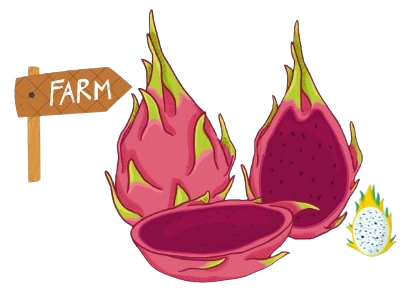
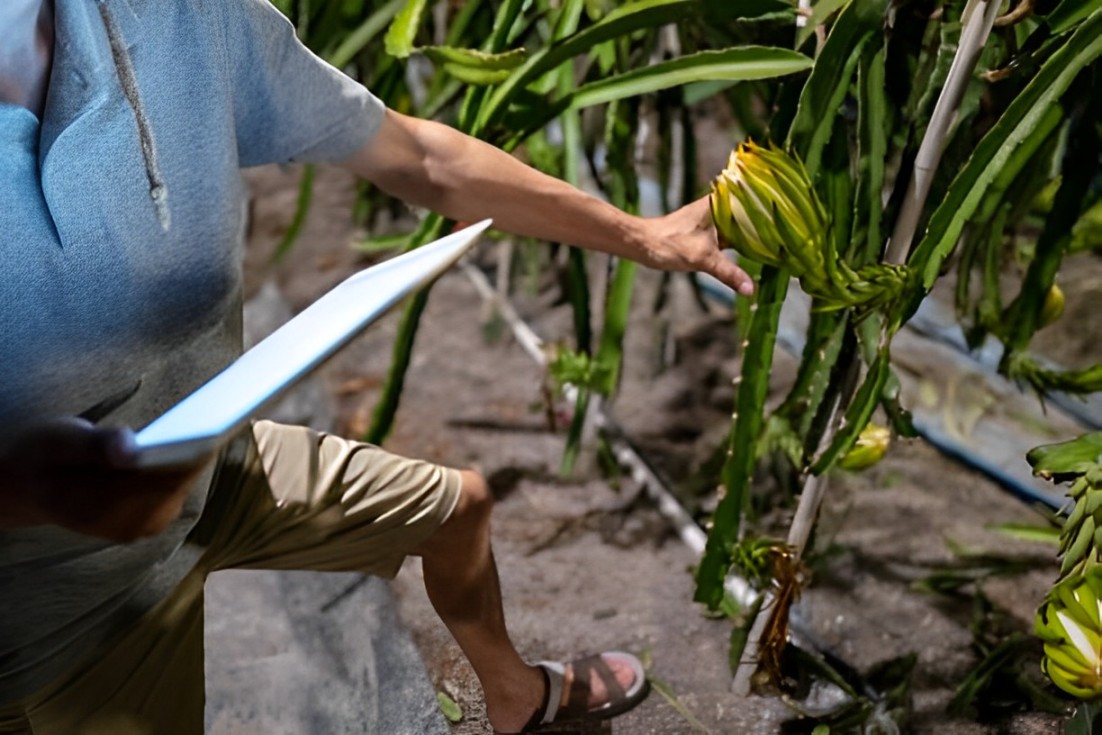
3 thoughts on “Why Soil testing for dragon fruit farming is Important”